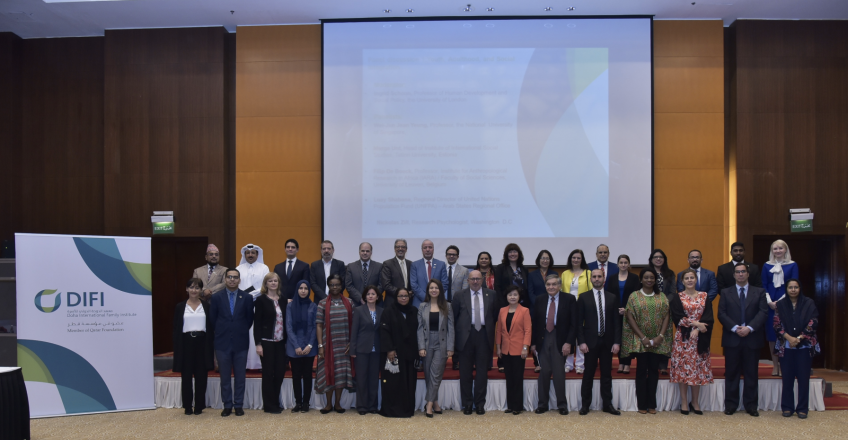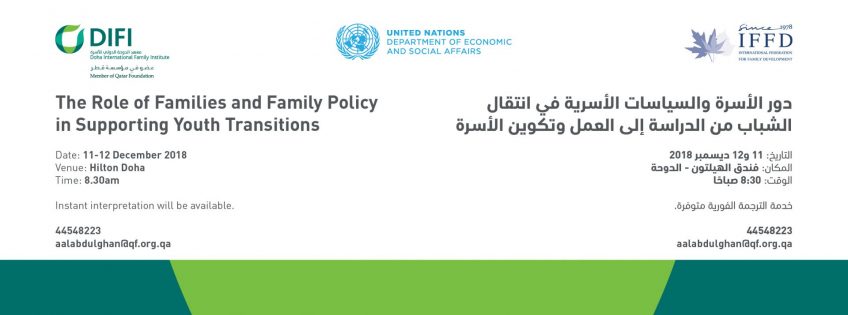The Division for Inclusive Social Development of the Department of Economic and Social Affairs (UNDESA) in collaboration with the Doha International Family Institute (DIFI), a member of Qatar Foundation for Education, and the International Federation for Family Development (IFFD), organized an Expert Group Meeting on “The Role of Families and Family Policy in Supporting Youth Transitions” from 11 to 12 December 2018 in Doha in Qatar.
Navigating the transition to adulthood, mainly from school and/or university to the workforce, is often a challenging process for adolescents and young people. The delayed transition from school to work prevents young people from gaining a sense of independence and affects other pathways to adulthood, including marriage, family formation, and civic participation. This waithood period in the lives of youth is a source of wasted potential, which can lead to frustration, radicalization and unrest.
A great deal of work has gone into studying the phenomenon of youth transitions to adulthood. However, little emphasis has been given to the role of families in youth transitions, especially to the role that they play in influencing career aspirations, providing career-related planning activities, and ultimately shaping post-school employment outcomes for young people. Instead, research on youth and their related transitions have tended to explore the economic and cultural capital families pass down to their offspring. Family research, however, has been concerned with an array of issues ranging from child poverty to the reconciliation of paid employment. In order to support families in dealing with such issues, more research is needed.
Overall, four main topics were discussed during the meeting:
- Youth, Adulthood and Social Integration
- Role of Families in Supporting Youth Transitions
- International Perspectives on Youth Policies
- Role of Youth in the SDGs
The EGM addressed the following questions:
- How do families influence youth career and employment decisions and outcomes? How do family structural variables (e.g., parental occupation, education, poverty) and family process variables (e.g., family involvement, parenting, support, and expectations) influence career development and outcomes for young people?
- How has family support affected job search dynamics among youth and under what conditions has this helped youth secure better jobs?
- What policies can help reinforce the family’s role in supporting their youth’s transition from school to work and help address youth employment challenges?
- What family policies might reinforce youth employment policies and help countries to improve youth outcomes, towards youth-related SDG targets (targets 4.4, 8.5 and 8.6)?


